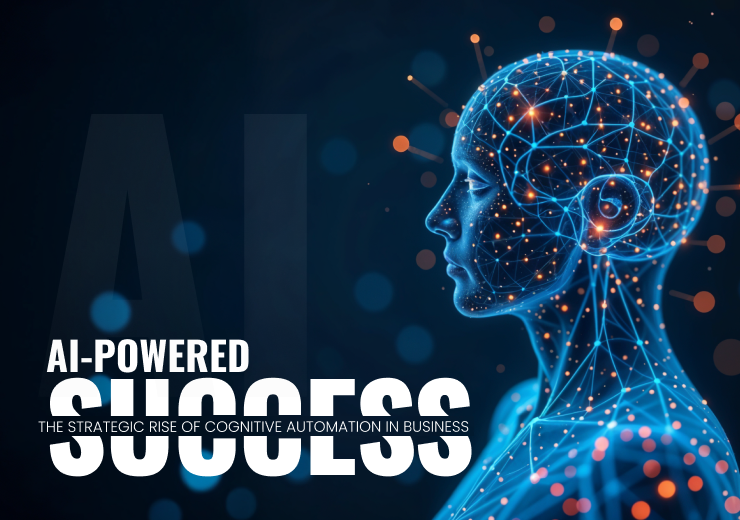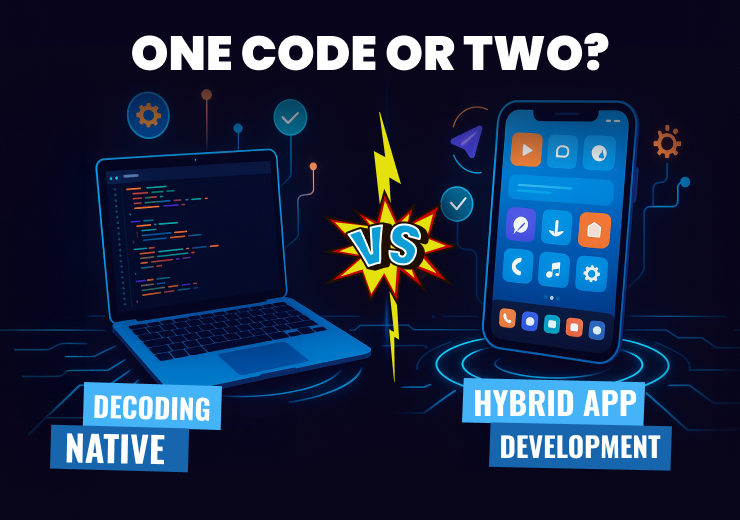Introduction: Why SEO Audits Matter More Than Ever Search Engine Optimization (SEO) is no longer just about keywords and backlinks. In the age of AI and machine learning, search engines like Google have evolved to understand context, intent, user experience, and topical relevance at an entirely new level. If you’re not regularly auditing your website with modern tools and strategies, you’re missing out on major opportunities to rank—and convert. Whether you’re an agency, an in-house marketer, or a solopreneur, a modern SEO audit powered by AI and smart analytics can help you identify what’s working, what’s broken, and what your competition is doing better. Let’s explore how to perform a modern SEO audit using AI tools, data, and advanced methodologies. 1. Start with a Smart Crawler: More Than Just Broken Links Traditional crawlers (like Screaming Frog) are still useful, but today’s AI-powered SEO tools like SurferSEO, SEMrush Site Audit, Ahrefs, and ContentKing can help you go beyond the basics. What to check: Crawl errors and broken links (404s, redirects) Mobile-first compatibility Core Web Vitals scores JavaScript rendering issues Page indexing status XML sitemap and robots.txt validation AI Tip: Use ContentKing or JetOctopus for real-time crawling and monitoring. These platforms use AI to detect changes instantly—perfect for dynamic sites and enterprise SEO. 2. Analyze On-Page SEO with NLP Tools On-page optimization is no longer about keyword density. Search engines use Natural Language Processing (NLP) to understand the context, tone, and depth of your content. How to do it: Use SurferSEO or MarketMuse to analyze keyword clusters, NLP terms, and content gaps. Run your content through Google’s NLP API or tools like Frase.io to check how search engines interpret your content. Check H1s, metadata, headings, alt tags, and semantic structure. AI Advantage: Tools like Frase and Surfer suggest AI-optimized content structures that align with what Google ranks, based on real-time SERP analysis. 3. Core Web Vitals & UX Optimization With the rollout of Core Web Vitals, Google has officially declared user experience as a ranking factor. Your SEO audit must prioritize: How to do it: LCP (Largest Contentful Paint) – how fast your main content loads FID (First Input Delay) – how fast your page responds to input CLS (Cumulative Layout Shift) – visual stability during loading What to use: Google PageSpeed Insights Lighthouse Audit via Chrome DevTools Web.dev Measure tool AI Edge: Use NitroPack or Cloudflare’s AI tools to auto-optimize image delivery, lazy loading, and script execution. 4. Content Quality & Topical Authority Modern SEO values topical clusters and content depth. A proper audit includes analyzing how well your site covers a subject. Steps: Use Topic Modeling Tools like MarketMuse or Dashword to map out content clusters. Audit your internal linking to ensure logical topical structure. Identify outdated pages and consider merging thin content. AI Insight: Use ChatGPT or Gemini to analyze SERP leaders and summarize content structure, tone, and missing elements. 5. Technical SEO & Structured Data Search engines love structure. Your audit should check: Schema markup for articles, products, events, FAQs, etc. Canonical tags to avoid duplicate content Pagination, hreflang (for multilingual sites), and AMP where applicable What to use: Google Search Console – for schema errors Merkle’s Schema Markup Generator SEMrush Site Audit for technical alerts Pro Tip: Implement AI-generated FAQs with schema to boost Featured Snippets and People Also Ask placements. 6. Backlink Profile & E-E-A-T Analysis Backlinks still matter—but so do trust and credibility signals (Experience, Expertise, Authoritativeness, Trustworthiness). Tools to use: Ahrefs or Majestic – for backlink profile analysis Google Search Console – for toxic links Manual audit of author bios, credentials, and review signals AI Tip: Use SEOClarity or Clearscope AI to identify unlinked brand mentions and opportunities to build authority pages. 7. Competitor Benchmarking (with AI Power) You can’t improve what you don’t compare. Use AI to reverse-engineer your competitors’ SEO strategies. How to do it: Use SEMrush, Ahrefs, or SimilarWeb to analyze keyword gaps, backlink overlaps, and content topics. Use ChatGPT to summarize top-ranking pages and extract content themes or schema types. Conclusion: SEO in 2025 Needs AI + Strategy Performing an SEO audit in the age of AI isn’t just about checking boxes—it’s about understanding how algorithms think, what users want, and how to bridge the gap with intelligent tools. The secret to dominating search results today lies in blending traditional best practices with the power of AI-driven insights. We love to hear from you Contact Us

When the word "blockchain" comes up, the first thing that often springs to mind is cryptocurrency – Bitcoin, Ethereum, and the volatile world of digital currencies. However, as we navigate the technological landscape of 2025, it's crucial to recognize that the underlying technology, blockchain, possesses a far broader and more transformative potential that extends way beyond the realm of crypto. From streamlining supply chains in bustling markets to securing sensitive healthcare data across India, blockchain's inherent characteristics of transparency, security, and immutability are poised to revolutionize numerous industries. More Than Just a Ledger for Crypto: Understanding Blockchain's Core Strengths At its heart, blockchain is a distributed, immutable ledger that records transactions across many computers. This decentralized nature makes it incredibly secure and transparent, as no single entity controls the information, and every transaction is permanently recorded and verifiable by all participants. These fundamental strengths make blockchain an ideal solution for a wide array of applications far removed from the fluctuations of the cryptocurrency market. Unlocking Real-World Applications in 2025: As we move deeper into 2025, the practical applications of blockchain technology are becoming increasingly tangible: Revolutionizing Supply Chain Management: Imagine tracking the journey of Darjeeling tea from the estates to your cup with complete transparency. Blockchain enables businesses to create auditable and transparent supply chains, verifying the origin, authenticity, and condition of goods. This is particularly relevant for industries dealing with perishable goods, luxury items, and pharmaceuticals, ensuring consumers receive genuine and high-quality products. Securing Healthcare Records: The secure and tamper-proof nature of blockchain makes it an ideal solution for storing and managing sensitive healthcare records. Patients can have greater control over their data, and healthcare providers can access accurate and up-to-date information securely, improving efficiency and patient care. Think of the benefits for hospitals and patients across West Bengal. Transforming Voting Systems: Blockchain's immutability and transparency can enhance the security and integrity of voting processes. By creating a tamper-proof record of votes, blockchain could help reduce fraud and increase trust in democratic elections. While still in early stages of adoption for large-scale elections, pilot projects worldwide are exploring its potential. Empowering Digital Identity: In a world increasingly reliant on digital interactions, managing and verifying identity securely is paramount. Blockchain-based digital identity solutions can provide individuals with greater control over their personal information, reducing the risk of identity theft and simplifying online transactions. Ensuring Data Security and Integrity: Beyond specific industries, blockchain's fundamental security features make it valuable for any application requiring tamper-proof data storage, from intellectual property protection to land registry systems. Building Decentralized Applications (dApps) Beyond Finance: While many early dApps focused on decentralized finance (DeFi), we are now seeing a rise in dApps leveraging blockchain for social media, gaming, data storage, and more, offering users greater control and ownership of their data and digital assets. Enterprise Blockchain Solutions: Major corporations are increasingly adopting private or consortium blockchains to improve efficiency and security within their own networks and with trusted partners. These permissioned blockchains offer the benefits of the technology while maintaining a degree of control. Embracing Blockchain Beyond Crypto: For businesses and institutions across India, understanding the non-cryptocurrency applications of blockchain presents significant opportunities for innovation and growth. From enhancing the transparency of the jute industry to securing land records and streamlining government services, the potential for blockchain to drive efficiency and build trust is immense. The Future is Distributed and Secure: While cryptocurrencies brought blockchain into the mainstream consciousness, its true transformative power lies in its ability to create secure, transparent, and decentralized systems for a wide range of applications. As we move further into 2025, expect to see blockchain technology increasingly integrated into various aspects of our lives, far removed from the volatile world of digital currencies, promising a future where data integrity and trust are paramount. The revolution has just begun, and it extends far beyond Bitcoin. We love to hear from you Contact Us

Artificial Intelligence (AI) and cognitive automation are not just trends—they are transformative forces redefining how modern businesses operate, compete, and grow. From smarter decision-making to seamless operations, AI is driving a new era of innovation. By simulating key human cognitive functions such as learning, reasoning, and problem-solving, AI-powered systems can process and interpret massive volumes of data at speeds no human could match. This evolution is touching every sector—from retail and healthcare to finance and customer service—making operations faster, smarter, and more sustainable. Cognitive Automation: Bridging AI with Intelligent Automation Cognitive automation blends the predictive power of artificial intelligence with the efficiency of robotic process automation (RPA), enabling businesses to handle both rule-based and complex, judgment-intensive tasks. Unlike traditional automation, which relies strictly on predefined rules, cognitive automation learns continuously from data patterns and adapts to new trends. For example: Customer Service: AI chatbots handle routine queries instantly while escalating nuanced cases to human agents, improving both customer satisfaction and cost efficiency. Finance: AI algorithms monitor market trends, detect fraud, and refine investment strategies with unmatched accuracy. Key Use Cases of AI in Modern Business AI’s impact extends far beyond efficiency—it’s a catalyst for personalized experiences, innovation, and business agility. Here’s how industries are leveraging it: Retail: Personalized product recommendations powered by machine learning increase conversions and enhance the customer journey. Manufacturing: Predictive maintenance driven by AI minimizes downtime and lowers operational costs. Healthcare: AI revolutionizes diagnostics, drug development, and treatment plans, improving patient outcomes significantly. Marketing: Behavioral analytics enable hyper-targeted campaigns, driving higher engagement and ROI. The Strategic Edge: Why AI is a Business Imperative In today’s competitive environment, being future-ready means being AI-ready. AI is no longer just an advanced tool—it’s a core component of business strategy. Companies using AI to uncover insights, detect anomalies, and forecast outcomes can make smarter, faster decisions. According to McKinsey, AI could inject up to $13 trillion into the global economy by 2030. A PwC report reveals that businesses using AI for decision-making see efficiency gains of up to 25%. Organizations embracing AI today are better positioned to navigate shifting market demands and stay ahead of disruption. Navigating Challenges: What Businesses Should Consider Despite its transformative potential, AI adoption is not without challenges. Here are some key concerns: High Setup Costs: Implementing AI requires investment in infrastructure, data systems, and skilled talent. Data Privacy & Security: Ensuring compliance with evolving data regulations is critical. Ethical Concerns: AI must be designed to avoid bias and ensure fair outcomes—responsible AI frameworks are essential. Workforce Impact: While automation may displace certain roles, it also creates opportunities in AI development, oversight, and strategic planning. Looking Ahead: The Human + Machine Advantage The future of AI lies in synergy—where human creativity meets machine intelligence. Businesses that implement AI with a clear strategy and ethical focus will not only thrive but lead in their industries. From refining customer experiences to optimizing operations and forecasting market shifts, AI is the backbone of next-gen business transformation. Cognitive automation isn’t just about efficiency—it’s about unlocking true intelligence at scale. Bottom line? Those who harness AI effectively today are shaping the success stories of tomorrow. We love to hear from you Contact Us

In 2025, digital transformation will no longer be a buzzword—it will be the defining factor of business survival and success. As organizations across the globe race to innovate, the convergence of emerging technologies like AI, automation, cybersecurity, and cloud computing is reshaping every industry. At Contrivance, we help businesses harness these transformations with future-ready IT infrastructure, custom software development, and intelligent automation solutions. In this blog, we’ll explore the top digital transformation trends of 2025 you can’t afford to ignore. 1. Hyperautomation Will Redefine Operational Agility Hyperautomation—the integration of AI, RPA (robotic process automation), ML, and analytics—is becoming a key enabler for enterprises seeking end-to-end digital operations. In 2025, organizations will move beyond automating repetitive tasks and focus on intelligent decision-making, process mining, and self-healing systems. Key Insight: Businesses that embrace hyperautomation will significantly reduce costs, increase accuracy, and improve speed across departments like finance, HR, customer support, and supply chain. 2. AI and Cognitive Tech Will Power Smarter Business Models Artificial Intelligence is moving from experimentation to real-world deployment across industries. From predictive analytics in retail, chatbots in healthcare, to fraud detection in finance, AI will enhance real-time decision-making and customer personalization. 3. Edge Computing Will Take Center Stage As IoT devices and real-time analytics become widespread, edge computing will emerge as the next evolution of cloud strategy. Instead of sending data to a central cloud, edge computing processes it closer to the source—reducing latency, enhancing speed, and improving data security. In 2025, expect industries like healthcare, manufacturing, and logistics to lead the charge in adopting edge-powered infrastructures. 4. Cybersecurity Becomes Business-Critical With more data being generated and shared across networks, cybersecurity is no longer just an IT concern—it’s a business enabler. In 2025, businesses will invest in zero-trust architectures, AI-driven threat detection, and regulatory compliance automation. According to IDC, by 2025, 60% of enterprises will make cybersecurity an essential part of board-level discussions. 5. Industry-Specific Solutions Will Surge Digital transformation is no longer “one-size-fits-all.” In 2025, solutions tailored to specific industries—healthcare, finance, logistics, education, etc.—will dominate the tech landscape. These vertical-specific platforms are more scalable, compliant, and aligned with real operational challenges. 6. Sustainable Tech Will Drive Green Innovation With ESG (Environmental, Social, Governance) goals gaining traction, companies will adopt green technologies, energy-efficient data centers, and sustainability dashboards that track their environmental impact. Businesses aligning digital transformation with sustainability goals will not only meet regulations but also appeal to conscious consumers and investors. 7. Cloud-Native Architectures Will Dominate Modern Development In 2025, businesses will shift more aggressively toward cloud-native technologies like microservices, containers (e.g., Kubernetes), and serverless computing. These solutions allow for faster development, easier scalability, and better resilience. 8. Remote and Hybrid IT Infrastructure Will Mature Work-from-anywhere is the new normal. In 2025, businesses will invest heavily in remote infrastructure management (RIM), cloud desktops, and automated monitoring tools to support hybrid workplaces without compromising performance or security. Key Takeaways for Businesses Digital transformation is not a destination—it’s a continuous evolution. 2025 will be marked by automation, AI, secure infrastructure, industry-specific platforms, and sustainability Businesses that act early and partner with the right technology providers will gain a decisive competitive edge. Conclusion Digital transformation is reshaping the way businesses operate, communicate, and deliver value. From automation and data analytics to AI-driven insights, organizations are leveraging technology to become more agile, efficient, and customer-centric. However, successful digital transformation goes beyond just adopting new tools—it requires a strategic mindset, continuous innovation, and a culture open to change. As technology continues to evolve, staying adaptable and embracing digital advancements will be essential for long-term growth and competitiveness. We love to hear from you Contact Us

In the digital-first world, mobile apps are no longer just an extension of your website—they’re often the front door to your brand. Whether you’re building a product for customers or streamlining your internal processes, choosing the right app development strategy is crucial. The big question that arises is: Native or Hybrid—what’s the best path for your project? Let’s unpack the differences between native and hybrid app development, analyze the pros and cons, and help you make an informed decision that aligns with your business goals, timelines, and budgets. What Is Native App Development? Native apps are built specifically for a particular mobile operating system—typically Android or iOS. Developers use platform-specific languages and tools like Swift or Objective-C for iOS, and Java or Kotlin for Android. These apps are installed directly onto a user’s device and can access system resources like camera, GPS, or push notifications with optimal speed and responsiveness. Pros of Native Apps: Performance: Native apps are faster and more efficient because they are optimized for a specific platform. User Experience (UX): Offers the best UI/UX as it adheres to platform-specific guidelines. Access to Hardware Features: Seamless integration with device features like camera, GPS, and Bluetooth. Scalability: Easier to scale and maintain performance with increasing users. Cons of Native Apps: Cost: Requires separate development for each platform, increasing development time and costs. Time-Intensive: Maintaining two separate codebases doubles the workload. Talent Requirement: Developers must specialize in platform-specific languages and tools. What Is Hybrid App Development? Hybrid apps are built using web technologies like HTML, CSS, and JavaScript, and are wrapped in a native container using frameworks like Ionic, React Native, or Flutter. This enables them to run on both Android and iOS from a single codebase. While the core is built as a web app, the shell allows it to behave like a native app on mobile devices. Pros of Hybrid Apps: Cost-Effective: One codebase works for both iOS and Android, reducing development and maintenance costs. Faster Time to Market: Shared codebase speeds up development and updates. Wider Reach: Reach users across platforms with a single app. Simplified Maintenance: Bug fixes and feature updates can be rolled out across both platforms simultaneously. Cons of Hybrid Apps: Performance Limitations: May lag behind native apps in terms of performance, especially for high-load or graphics-heavy applications. Limited Access to Native Features: Some device functionalities may be harder to access or require plugins. Inconsistent UX: Might not fully adhere to design norms of each platform, leading to a less polished user experience. Native vs. Hybrid: Which One Should You Choose? The decision ultimately depends on several critical factors: 1. Project Complexity For complex, high-performance applications like gaming or real-time financial apps, native is the clear winner. For content-driven or MVP applications, hybrid apps offer a quicker and more affordable solution. 2. Time to Market Native apps typically require more time due to dual development. Hybrid apps let you launch faster, which is ideal for startups or businesses testing market response. 3. Budget Constraints If budget is tight, hybrid apps are cost-effective and ideal for reaching both Android and iOS audiences simultaneously. For businesses with a larger budget looking for the best performance and UX, native is a solid investment. 4. Long-Term Vision If your app will grow in complexity or scale significantly, starting with a native approach might save time and resources later. Hybrid apps are excellent for short-term needs, prototypes, or apps with moderate functionality. Conclusion In the battle of native vs. hybrid, there’s no universal winner—just the right choice for your unique goals. If your app requires top-tier performance, seamless UI, and deep integration with device features, native is your go-to. If you’re on a budget or need to get to market fast across platforms, hybrid is the smart route. By aligning your choice with your business strategy, user needs, and development capabilities, you’ll not only optimize your resources but also deliver an app that performs well and delights users. We love to hear from you Contact Us

How does your brand accomplish the increasingly expanding expectations of today’s consumers? Turn to blockchain for business ! This revolutionary technology boosts security, streamlines operations, enhances transparency, and establishes trust across industries. Whether it’s enabling smart contracts, optimizing supply chains, safeguarding digital identities, or powering up decentralized finance, blockchain can help your business innovate and gain an edge in today’s digital age. As we approach 2025, businesses should leverage the emerging blockchain trends to be ahead of the curve and guarantee long-term sustainability. From AI-driven smart contracts to decentralized finance (DeFi), blockchain is poised to reimagine how businesses operate. Needless to say, the future of blockchain is brimming with limitless potential. But before you take the leap to revolutionize your business, delve into what blockchain is and how the latest trends can future-proof your brand for long-term success. What Is Blockchain? Blockchain refers to an immutable, shared ledger that facilitates the overall process of recording transactions and monitoring assets in today’s business network. Why is blockchain crucial? Every business, these days, runs on data. The faster data is received and the more accurate the process is, the better ! Blockchain is perfect for delivering that data, as it offers shared, observable, and immediate information that’s stored on an immutable ledger that just permissioned network members can access. Blockchain cybersecurity and networks can monitor orders, accounts, payments, production, and more ! And, as members share just a single view of the truth, you can witness every detail of a transaction end-to-end, providing you with greater confidence and more opportunities and efficiencies. Unlock the Potential of These Emerging Blockchain Trends in 2025 Future-ready means blockchain-ready ! In today’s rapidly evolving tech landscape, leveraging blockchain can provide early-mover advantages, enhancing transparency, efficiency, and security across industries. Let’s explore how you can future-forward your business by tapping into the latest and most anticipated blockchain trends of 2025 – 1. Adopting AI-Integrated Smart Contracts Smart contracts are already revolutionizing industries by automating processes, minimizing costs, and boosting security. In 2025 and even beyond, the advanced AI-driven smart contracts will level up automation by enabling adaptive, self-learning agreements that can predict and respond to real-time data changes. Businesses should start integrating AI with smart contracts to streamline operations, improve accuracy, and reduce risks associated with human intervention. 2. Leveraging Decentralized Finance (DeFi) Decentralized finance (DeFi) has reimagined financial transactions by eliminating intermediaries and providing greater transparency. With blockchain digital transformation and advancements, DeFi solutions are now expected to be more scalable and secure in 2025. Businesses can make them future-forward by embracing DeFi solutions for lending, investments, and payments, ensuring financial better inclusivity and more efficiency. 3. Exploring Blockchain Interoperability One of the biggest drawbacks of blockchain adoption has been the lack of interoperability between multiple networks. The emergence of cross-chain solutions in 2025 will help businesses seamlessly exchange assets and data across various blockchain platforms. Every modern business should invest in blockchain interoperability to boost flexibility and maximize market reach. 4. Implementing Blockchain for Supply Chain Supply chain management is a highly promising use case for blockchain technology. In 2025, blockchain will provide enhanced traceability, enabling organizations to keep a tab on products or services in real-time, from origin to destination. Embracing blockchain supply chain will enhance transparency, improve efficiency, and reduce fraud. 5. Ensuring Data Privacy with ZKPs In this day and age of “digital everything, ” the importance of data privacy and security has become all the more paramount. ZKPs, or zero-knowledge proofs, allow transactions to be verified without disclosing any sensitive information. Organizations can explore zero-knowledge proofs to safeguard consumer data, comply with regulations, and establish more trust among stakeholders. 6. Bolstering Cybersecurity with Blockchain With cyber threats growing more sophisticated, the decentralized nature of blockchain offers robust security measures. Businesses can leverage blockchain for secure identity management, encrypted communication networks, and fraud prevention. By embracing these measures, modern businesses can protect sensitive data from cyberattacks and unauthorized access. 7. Investing in Green Blockchain Solutions Sustainability is a growing priority, and blockchain is evolving to address environmental concerns. Energy-efficient consensus mechanisms like Proof of Stake (PoS) and blockchain-powered carbon credit tracking are gaining momentum, driving greener and more responsible innovation. Businesses should adopt eco-friendly blockchain solutions to advance global sustainability goals and strengthen corporate responsibility. Embrace the Blockchain Revolution in 2025 The blockchain landscape of 2025 brings unlimited opportunities for businesses looking to embrace innovation. By leveraging DeFi, integrating AI-powered smart contracts, embracing supply chain transparency, and making security a top priority, businesses can future-proof themselves against disruption. Being ahead and above the above-mentioned blockchain trends will not just boost operational efficiency but also position organizations as industry leaders in today’s digital age. To tap into the untapped potential of blockchain, start strategizing today and stay abreast of the digital noises. Conclusion AI hallucinations highlight both the impressive capabilities and inherent limitations of current AI systems. While AI can generate useful and innovative content, it is essential to approach its outputs with critical thinking and verification. As AI continues to evolve, improving its accuracy, reliability, and ability to distinguish fact from fiction will be key to its responsible adoption. We love to hear from you Contact Us

Welcome to our Contrivance Softech Pvt Ltd. We do end to end solution when it comes to design or development for your online presence.
Get In TouchMon - Sat: 8 am - 5 pm, Sunday: CLOSED
© 2025 All rights reserved.
